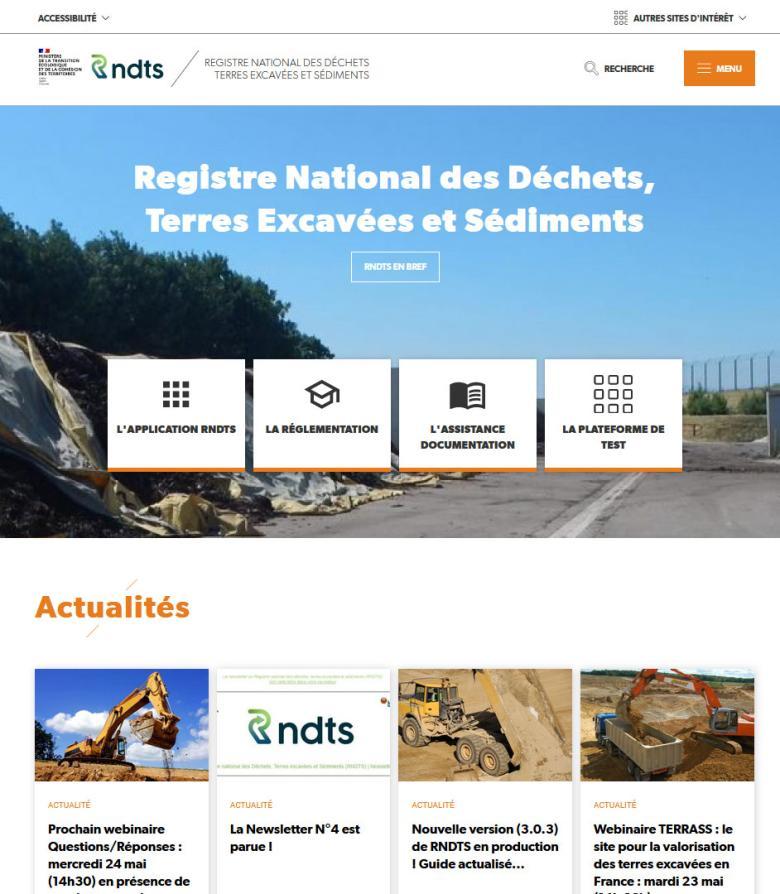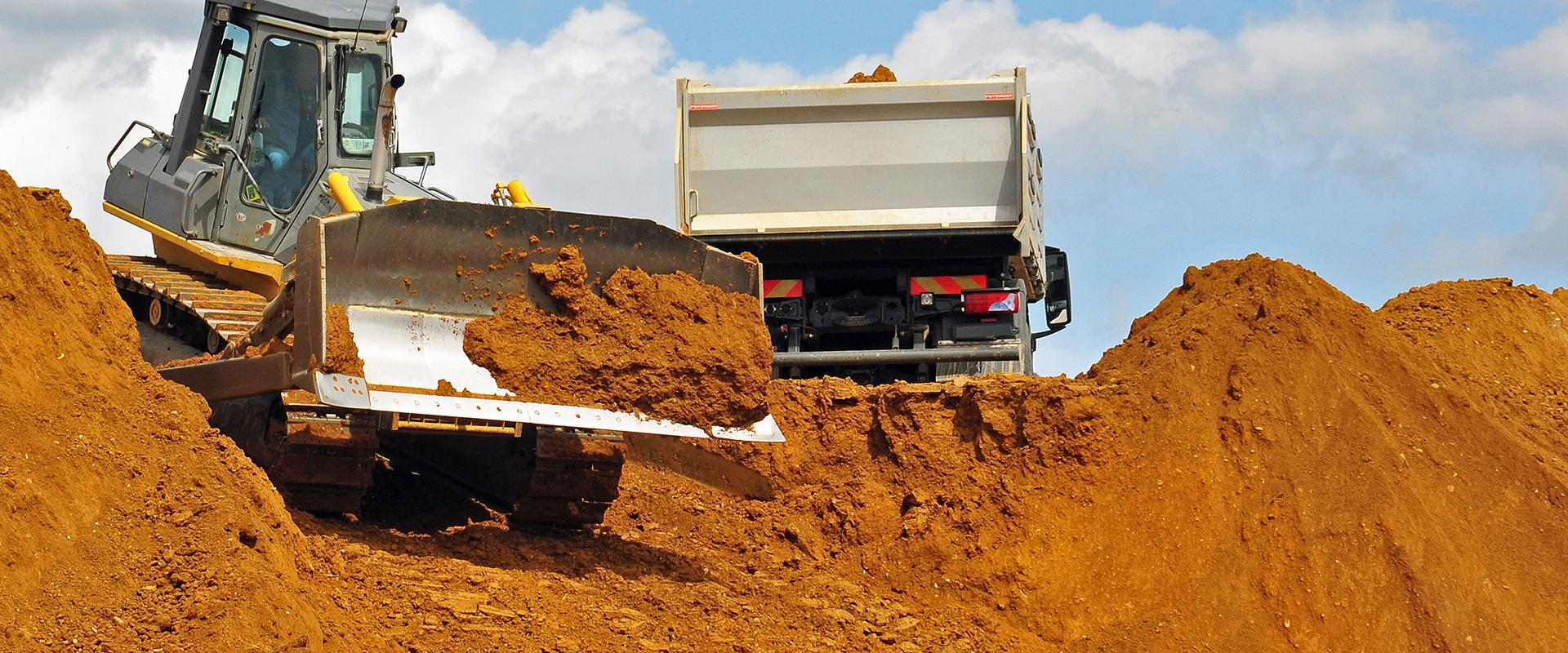
The website to assist stakeholders in the sectors concerned by the National Register of Waste, Excavated Soil and Sediments (RNDTS).
© BRGM
The creation of this on-line service should make it possible to improve the traceability of waste, excavated earth and sediments, which represent 150 million tonnes each year in the public works and construction sector. By keeping chronological records of waste, excavated earth and sediment flows, it facilitates tracking of the life cycle of materials as part of a circular-economy strategy and promotes their recovery within a framework of transparency and environmental guarantee. The National Register has been on line since January 2022. In order to communicate with all stakeholders and to allow them to prepare themselves as well as possible to meet these new obligations, the State had granted a period of tolerance which ended on 1 May 2023. Actors in this sector are now required to make their declarations and/or import them into the RNDTS application. Almost 50,000 establishments are concerned by the scheme and around 100 million declarations are expected each year.
Regulatory developments relating to the traceability of waste and then of materials
The National Register of Waste, Excavated Soil and Sediments (RNDTS) was created to respond to a new European regulation, the "Waste Framework Directive". It states that Member States must create an electronic register to "record data on hazardous waste [...], for the whole geographical territory of the Member State concerned". This traceability provision was incorporated again in the Anti-Waste for a Circular Economy (AGEC) Act and extended to include excavated soil and sediments. "It includes [...] excavated soil and sediments when they have been removed from their original location and not used on the excavation site, whether or not they are classified as waste."
The "traceability decree" specifies the way these new provisions are to be applied, and in particular ratifies the creation of the National Register of Waste, Excavated Soil and Sediments (RNDTS), which will constitute a national database in an electronic format.
A wider range of stakeholders involved in RNDTS reporting
All stakeholders in the "hazardous or persistent organic pollutants (POP) waste" chain are obliged to make a declaration to the RNDTS: producers, shippers, collectors, transporters, traders, brokers, as well as operators of transit, consolidation or treatment facilities for hazardous waste. On the other hand, only some of the stakeholders in the "non-hazardous, non-inert waste" sector are concerned: these are the operators of incineration or storage facilities for non-hazardous, non-inert waste, and facilities in which waste is transformed into something else. Finally, the "excavated soil and sediments" sector is also concerned, including producers, establishments that carry out recovery operations or those that operate transit or consolidation facilities for excavated soil or sediments.
For whom is the inventory intended and what is the benefit?
The RNDTS register is intended to be consulted by government departments (DREAL, DGFIP, etc.), as well as the Regional Councils and ADEME, and caters to the following strategic goals:
- establish an inventory of the overall volumes involved and consolidate the organisation of the flows of waste or materials and the quantities involved, at regional/national levels,
- encourage the reuse/recovery of materials rather than their storage,
- digitalise and facilitate inspections to improve transparency and environmental protection,
- provide the various players affected by this new regulation with effective support by linking their internal registers with the national register.
Land traceability, a formality with RNDTS
The RNDTS application
BRGM was commissioned to design the declarative application consolidating the on-line declarations of the stake-holders concerned.
It went on-line on 7 January 2022 and has been progressively improved to facilitate its use and adapt it to existing practices: interfacing with Trackdéchets (the pre-existing traceability tool for hazardous and POP waste); interconnection with the application (via an API) to avoid double entry with existing internal digital registers; mass import of data rather than declarations by direct entry into the application, etc.
The reporting application is accompanied by a website providing assistance and support for stakeholders to keep them informed of the latest developments, help them understand the rules and fields of declaration and animate the members' network (via webinars and newsletters).
To find out more
Press contact








